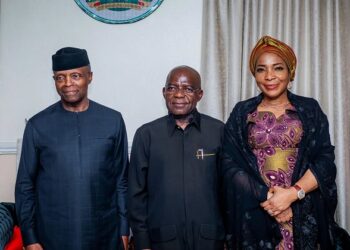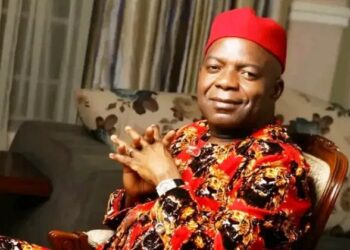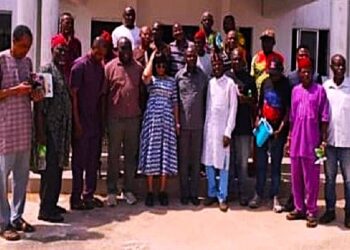By Dr. Evans Woherem

Zeinab Badawi’s “An African History of Africa: From the Dawn of Humanity to Independence” is a monumental and long-overdue work that reshapes our understanding of African history and its profound impact on global civilization.
For too long, both Africans and the global community have been subjected to a one-sided, Eurocentric interpretation that has grossly diminished Africa’s role in world history, often depicting the continent as a blank slate devoid of significant knowledge or a past worth acknowledging.
Badawi’s groundbreaking book challenges and dismantles these long-held misconceptions, offering a comprehensive and authentic exploration of Africa’s rich and multifaceted history.
Through seven years of extensive fieldwork, interviews with leading academics and experts, and reliance on authoritative sources like the “General History of Africa,” Badawi has meticulously compiled a narrative that restores Africa’s rightful place at the centre of human history.
The book traces the origins of humanity back to the plains of Southern and Eastern Africa, detailing the evolutionary journey from early hominids like Toumai, Lucy, and the Taung Child to Homo Habilis and Homo Erectus.
Badawi’s research sheds light on the pivotal role Africa played in the development of modern humans, as the cradle from which our ancestors began their out-of-Africa migration around 90,000 years ago.
Badawi’s meticulous research and engaging storytelling bring to life the intricate tapestry of Africa’s civilizations, underscoring the continent’s contributions to global history and culture that have long been overshadowed by stereotypical narratives of primitiveness and simplicity.
From the architectural marvels of ancient Egypt and the sophisticated ironworking techniques of the Nok culture to the advanced trade networks of the Mali Empire, with its immense wealth and centres of learning like Timbuktu, Badawi’s account dismantles the myths of African backwardness.
She also highlights the cultural and political systems of the Yoruba and Benin Kingdoms, demonstrating their complex social structures and artistic excellence.
Moreover, Badawi’s exploration of the Nsibidi writing system sheds light on Africa’s rich literary traditions that predate many European written records, while her account of Great Zimbabwe’s architectural ingenuity and the military prowess of the Zulu Kingdom further challenges the notion of African primitiveness.
By drawing from archaeological findings, historical documents, and oral traditions, Badawi ensures a balanced and credible portrayal of African history, inspiring a sense of pride and identity among Africans and the diaspora. Her work encourages readers to recognize and celebrate the continent’s resilience, innovation, and enduring influence on human civilization.
“An African History of Africa” is a tour de force that enriches our understanding of the world by restoring Africa’s rightful place at the centre of human history. It is a testament to the continent’s profound legacy and an invaluable resource for fostering a more inclusive and accurate global historical narrative.
Badawi’s book is an essential read for academics, students, and anyone interested in understanding the true scope of Africa’s historical impact and contributions to the world we live in today.




















